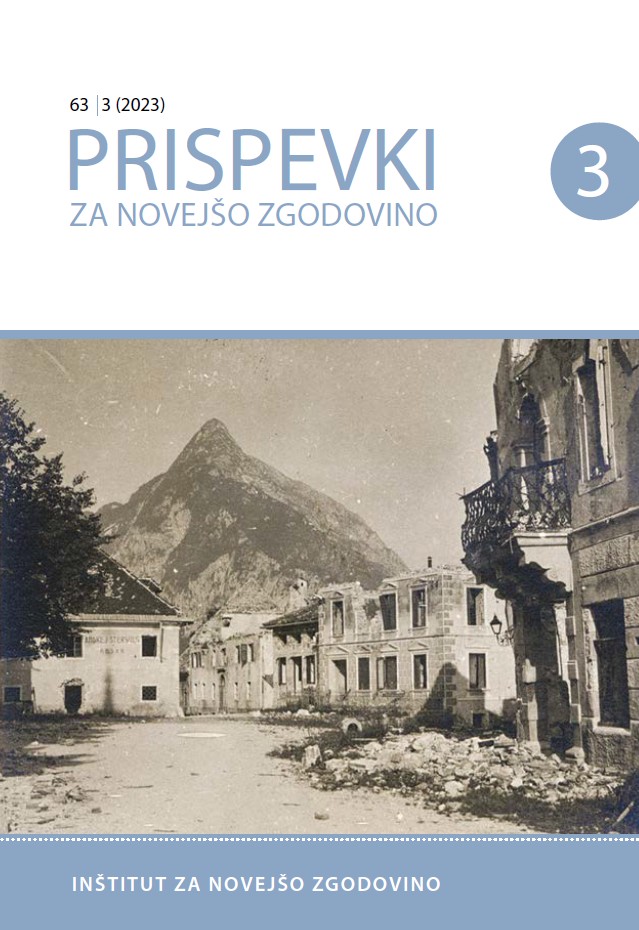“We Are Here – We Are Yours” – The First Referendum on Self-Imposed Contributions in Ljubljana
DOI:
https://doi.org/10.51663/pnz.63.3.09Keywords:
self-imposed contributions, referendum, Ljubljana, education, self-managementAbstract
The present article examines the events leading to the first Ljubljana referendum on self-imposed contributions, representing the largest local self-imposed contributions in the Socialist Republic of Slovenia to that date. It analyses the influence of various factors that contributed to the decision to hold the referendum and the conditions in Ljubljana before 1971. In 1971, Ljubljana was facing a population increase, representing almost one-sixth of the population of the Socialist Republic of Slovenia. The shortage of educational and childcare institutions led to overcrowded conditions in existing schools. In 1967, a change in the law on education financing introduced the concept of communities of interest in education, enabling the financing of education through contributions from citizens, taxes, and other sources. Ljubljana encountered difficulties in financing education and childcare, sparking discussions about the introduction of self-imposed contributions. In 1971, a referendum was held, in which the majority of voters supported the introduction of self-imposed contributions to improve education and childcare. The referendum was accompanied by an intensive propaganda campaign that included a wide range of activities and ended with a convincing result, as nearly 58% of the voters expressed support for self-imposed contributions.
References
Arhivski viri
SI ZAL LJU – Zgodovinski arhiv Ljubljana:
SI ZAL LJU 70, Mestna skupščina Ljubljana.
SI ZAL LJU 102, Mestna konferenca Socialistične zveze delovnega ljudstva Ljubljana.
SI ZAL LJU 517, Občinska konferenca Socialistične zveze delovnega ljudstva Ljubljana Šiška.
SI ZAL LJU 612, Mestna zveza prijateljev mladine Ljubljana.
SI ZAL LJU 685, Mestna konferenca ZKS Ljubljana.
Literatura
Georgeoff,, Peter John. The Educational System of Yugoslavia. Washington: U.S. Dept. of Education International Education Programs, 1982. Dostopno na: http://books.google.com/books?id=oQdXuQz5bR0C.
Kladnik, Ana. »Local Self-Governance, Voluntary Practices, and the Sinnwelt of Socialist Velenje.« V: Making Sense of Dictatorship: Domination and Everyday Life in East Central Europe After 1945. Budapest: Central European University Press, 2022. Dostopno na: https://muse.jhu.edu/book/94682/.
Srdić, Milutin in Ljubiša S. Adamović. Politička Enciklopedija. Beograd: Savremena administracija, 1975.
Voglar, Dušan in Alenka Dermastia. Enciklopedija Slovenije. 10 Pt-Savn. Ljubljana: Mladinska knjiga, 1996.
Tiskani viri
Delo, 21. 11. 1971. »ZA!.«
Naša skupnost (Ljubljana Moste-Polje), oktober 1971. »Otrok privezan k postelji – mati v službi.«
Uradni list LRS, št. 21/1947. 24. 5. 1947. »Uredba o krajevnem samoprispevku.«
Uradni list SRS, št. 16/1967, 22. 4. 1967. »Zakon o izobraževalnih skupnostih in o financiranju vzgoje in izobraževanja v SR Sloveniji.«
Uradni list SRS, št. 3/1973. 31. 1. 1973. »Zakon o samoprispevku.«
Uradni list SRS, št. 43/1967, 29. 12. 1967. »Zakon o skupnostih otroškega varstva in o financiranju nekaterih oblik otroškega varstva v SR Sloveniji.«
Uradni list SRS, št. 7/1969. 4. 3. 1969. »«Zakon o prispevkih in davkih občanov.
Downloads
Published
Issue
Section
License
Authors who publish with this journal agree to the following terms:
- Authors retain copyright and grant the journal right of first publication with the work simultaneously licensed under a Creative Commons Attribution License that allows others to share the work with an acknowledgement of the work's authorship and initial publication in this journal.
- Authors are able to enter into separate, additional contractual arrangements for the non-exclusive distribution of the journal's published version of the work (e.g., post it to an institutional repository or publish it in a book), with an acknowledgement of its initial publication in this journal.
- Authors are permitted and encouraged to post their work online (e.g., in institutional repositories or on their website) prior to and during the submission process, as it can lead to productive exchanges, as well as earlier and greater citation of published work (See The Effect of Open Access).


